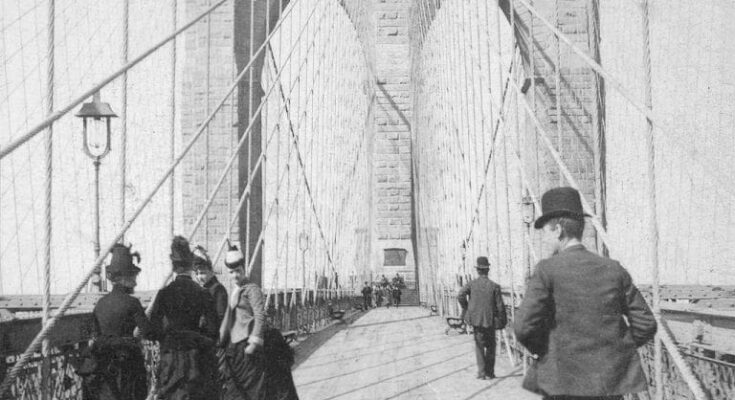The Brooklyn Bridge, a hybrid cable-stayed/suspension bridge, connects Manhattan and Brooklyn across the East River. Officially opened on May 24, 1883, it was the first fixed crossing of the East River and the world’s longest suspension bridge at the time. Initially called the New York and Brooklyn Bridge, it was renamed in 1915. The project, initiated in the early 19th century, was overseen by the Tammany Hall-controlled New York Bridge Company and designed by John A. Roebling and his son Washington Roebling, with significant contributions from Emily Warren Roebling.
Despite controversies and a novel design, the project spanned thirteen years. The bridge, a toll-free vehicular passage, also permits pedestrian and bicycle traffic. It has been a major tourist attraction and an icon of New York City, earning designations as a National Historic Landmark and a National Historic Civil Engineering Landmark.Proposals for a bridge or tunnel were suggested as early as 1800, with various designs presented.
John Augustus Roebling proposed the suspension bridge design in 1857, drawing on his previous experience with similar projects. The New York State Senate approved construction in 1867, leading to the incorporation of the New York and Brooklyn Bridge Company.
The bridge’s design included roadways, elevated rail tracks, and a raised promenade. Despite initial criticism, the project proceeded, with Washington Roebling taking over after his father’s death. Officially opened with a grand ceremony, the bridge significantly impacted cross-river traffic, reducing ferry patronage. Costing $15.5 million in 1883, it was the longest suspension bridge until the Williamsburg Bridge’s construction in 1903.
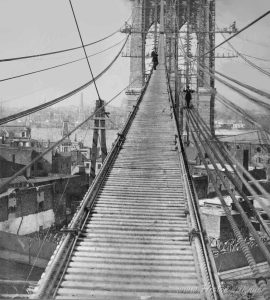
1869: The Brooklyn Bridge: A Landmark Achievement in Civil Engineering (1869-1883)
Discover the 1869-1883 construction journey of Brooklyn Bridge, a pivotal engineering breakthrough linking Manhattan and Brooklyn
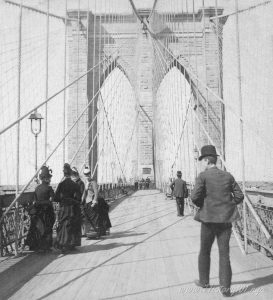
1883: Entrance to Brooklyn Bridge Promenade
An early photograph of the recently opened Brooklyn Bridge promenade – a much needed connection between Manhattan and Brooklyn.
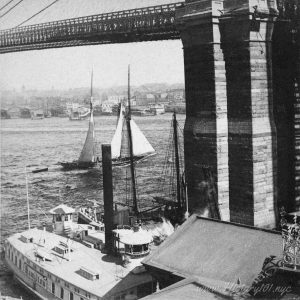
1885: Under The Brooklyn Bridge
Photograph of East River boats passing underneath the Brooklyn Bridge overpass
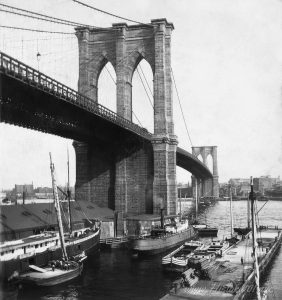
1896: View of Brooklyn Bridge
Photograph of boats in the East River docked near the Brooklyn Bridge
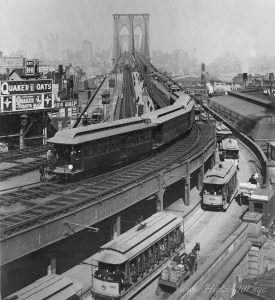
1898: Brooklyn Bridge Terminal
Photograph of the curved overpass at Brooklyn Terminal, New York & Brooklyn Bridge.
